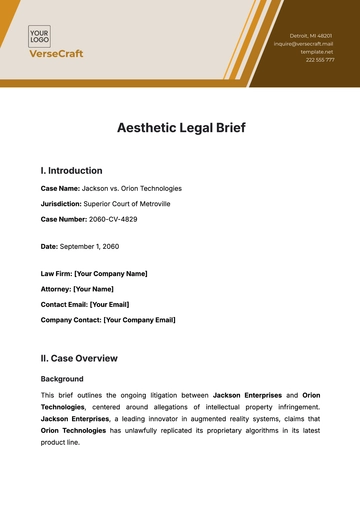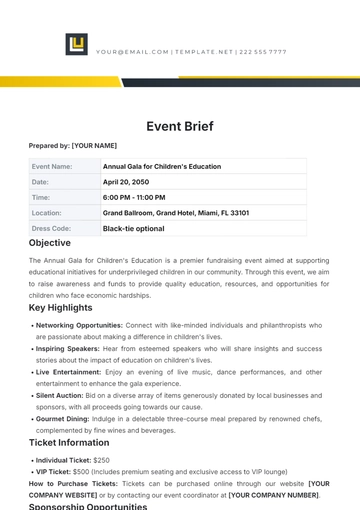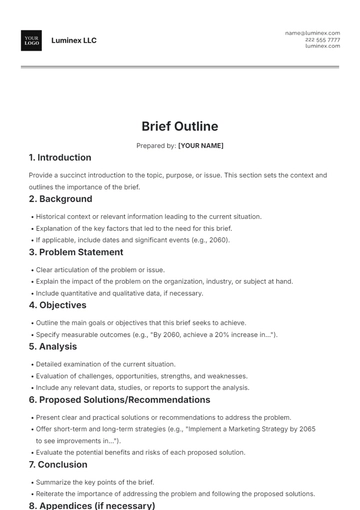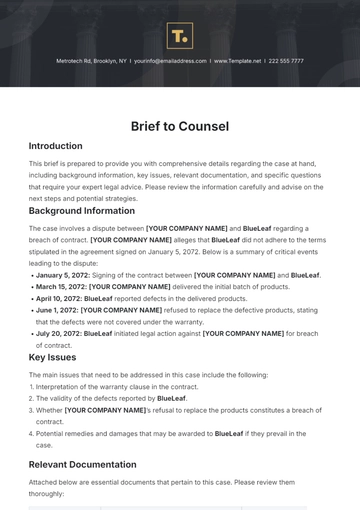Free Brown v. Board of Education Case Brief
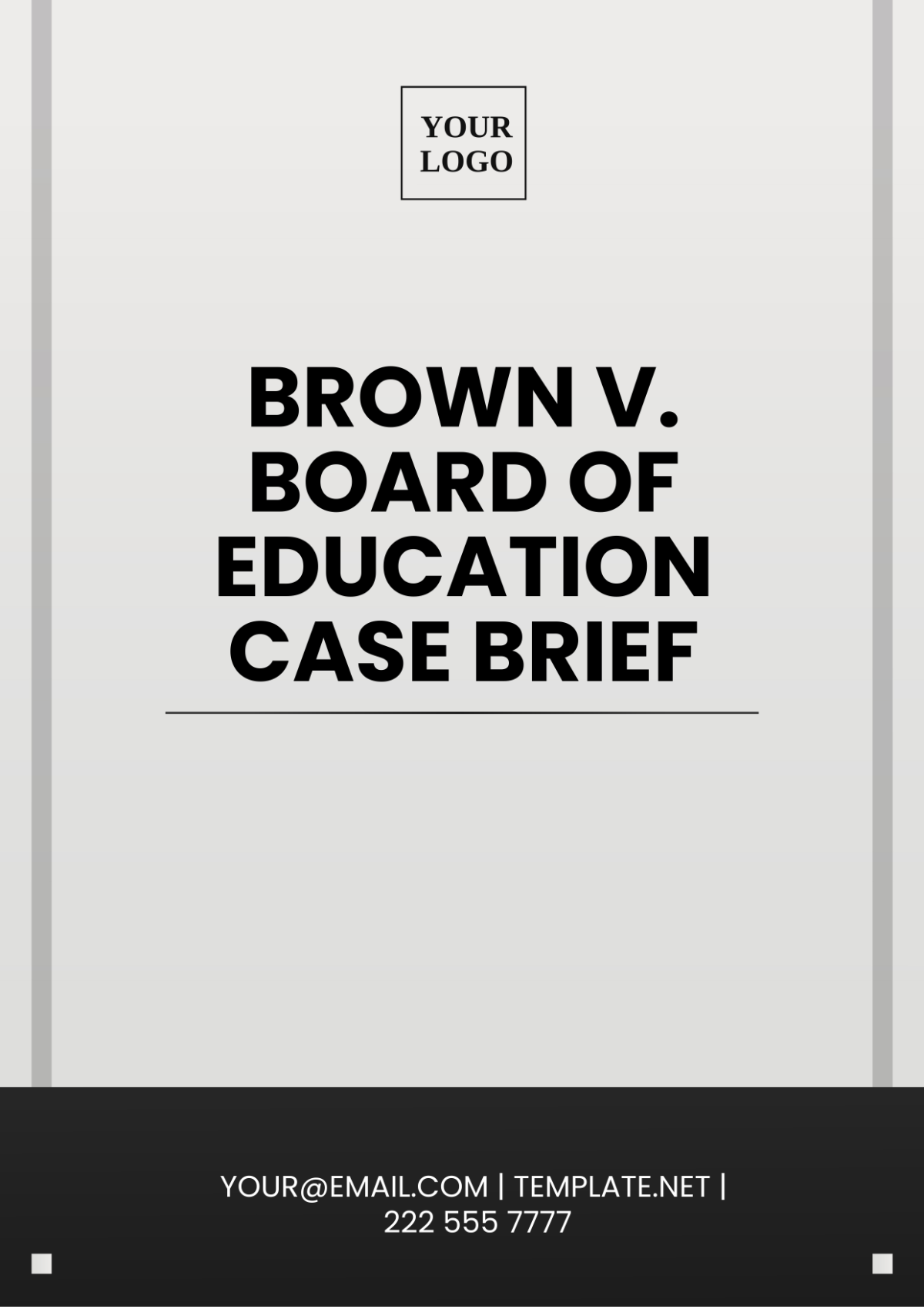
Case Brief
I. Case Citation
347 U.S. 483 (1954)
II. Date of Decision
May 17, 1954
III. Parties
Appellants: Oliver Brown et al. (Representing African American children)
Appellee: Board of Education of Topeka, Kansas
IV. Facts
In the early 1950s, racial segregation in public schools was widespread across the United States, including in Topeka, Kansas.
African American children were required to attend separate schools from white children, leading to disparities in resources, facilities, and educational opportunities.
Oliver Brown, a black parent, attempted to enroll his daughter, Linda Brown, in a nearby white school but was denied admission due to her race.
Brown and other parents joined together to challenge the segregation policy, arguing that it violated the Equal Protection Clause of the Fourteenth Amendment to the United States Constitution.
V. Issues
Whether racial segregation in public schools violates the Equal Protection Clause of the Fourteenth Amendment.
Whether the "separate but equal" doctrine established in Plessy v. Ferguson should be overturned.
VI. Holding
The Supreme Court unanimously held that racial segregation in public schools is unconstitutional and overturned the "separate but equal" doctrine.
VII. Reasoning
Chief Justice Earl Warren, writing for the Court, emphasized that segregation inherently creates a feeling of inferiority among black children, which has a detrimental effect on their educational and psychological development.
The Court recognized that education is crucial to the full participation of citizens in society and that segregated schools perpetuate inequality and stigma based on race.
Overruling the precedent set by Plessy v. Ferguson (1896), the Court concluded that separate educational facilities are inherently unequal and violate the Equal Protection Clause of the Fourteenth Amendment.
The Court rejected arguments that social and psychological factors justified segregation, emphasizing that the Constitution must be applied with an understanding of its principles and in light of contemporary knowledge and developments.
VIII. Outcome
The Supreme Court's decision in Brown v. Board of Education declared racial segregation in public schools unconstitutional.
The Court ordered the desegregation of schools across the United States, declaring that segregation must end "with all deliberate speed."
The decision marked a pivotal moment in the civil rights movement and paved the way for further legal challenges to segregation in other areas of society.
IX. Impact
Brown v. Board of Education was a catalyst for the broader civil rights movement, inspiring activism and legal challenges to racial discrimination in various aspects of American life.
The decision led to the desegregation of public schools, although implementation varied across different regions and met significant resistance in some areas.
Brown v. Board of Education remains one of the most significant Supreme Court decisions in American history, symbolizing the quest for equality and justice for all citizens.
- 100% Customizable, free editor
- Access 1 Million+ Templates, photo’s & graphics
- Download or share as a template
- Click and replace photos, graphics, text, backgrounds
- Resize, crop, AI write & more
- Access advanced editor
Conquer the landmark education case with this Brown v. Board of Education Case Brief Template, exclusively offered by Template.net. This customizable tool is downloadable and printable, designed to simplify your legal analysis. Editable in our AI Editor Tool, it empowers you to craft precise summaries effortlessly. With sections for IRAC analysis, dissect the case with clarity and confidence.






